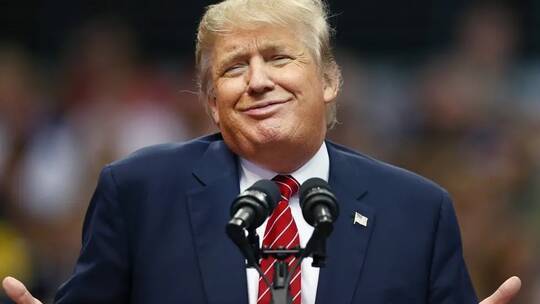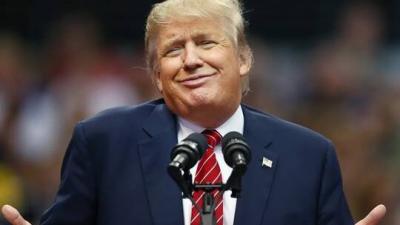As the crisis between Russia and Ukraine intensifies, Donald Trump described Russian President Vladimir Putin's actions as "smart and genius," proposing his own strategy for winning the war. In a speech delivered in New Orleans on Saturday night, the former U.S. president suggested simply placing Chinese flags on U.S. F-22 planes and then bombing Russia, leading to a conflict between the two allied nations. Trump stated, according to a recording obtained by the Washington Post: "Then we say, we didn't do it, China did it, and then they fight each other, and we sit back and watch." The audience laughed at Trump's "joke," but the idea itself violates international law. This is assuming that one could actually overlook the notion that Russia wouldn't notice American F-22s, a highly known aircraft not used by the Chinese.
The Washington Post noted that this may have been a joke or a jest from Trump, but it certainly constitutes very loose talk from a man who served as Commander-in-Chief of the U.S. Armed Forces for four years and could potentially hold the office again someday. This is not the first time Trump has proposed actions that might conflict with the law. Back in 2020, he spoke about bombing Iranian cultural sites, prompting a series of assurances from senior officials that the U.S. military would not do such a thing.
In this regard, the U.S. newspaper reported some legal opinions regarding Trump's statements, with Lori A.R. Blank, an international law expert at Emory University School of Law, stating: "It is prohibited to use the flag of a neutral state or any other state that is not a party to the conflict... This idea would involve the U.S. in the conflict because it would actually engage in military operations against Russia, violating the rule prohibiting the use of flags, emblems, or insignia of neutral states or non-parties to the conflict." She added: "It would lead to a significant escalation of the conflict, and the rules of neutrality and neutral states are designed to prevent exactly that."
Blank cited Article 39 of the First Additional Protocol to the 1949 Geneva Conventions, which states that "the use of flags or emblems or uniforms of neutral or other states not parties to the conflict is prohibited in an armed conflict." Other experts believe that the idea posed by the former U.S. president resembles treachery. William C. Banks from Syracuse University remarked: "A trick like this is treachery and violates international humanitarian law." Nevertheless, Michael A. Newton from Vanderbilt University noted that treachery generally deals with the misuse of an enemy's flag, not that of a third party. He stated: "It is an exaggeration to say that misusing Chinese markings would actually constitute treachery in the legal sense because they aren't even a distant party in the conflict... It is likely to cause confusion among Russian forces, accompanied, of course, by instant videos showing how unwise such a strategy would be."
Rosa Brooks from Georgetown University pointed out that despite the complexity of the law, "the short answer is that placing the insignia of another state on American bombers would be illegal." Earlier, the United States affirmed its prohibition on the use of the flags of neutral countries in its military manuals. For instance, the U.S. Navy guide states that ships at sea can use markings for deception when not engaged in combat. However, in the air "the use of false or deceptive markings to conceal fighting military aircraft as being neutral is prohibited in combat."




